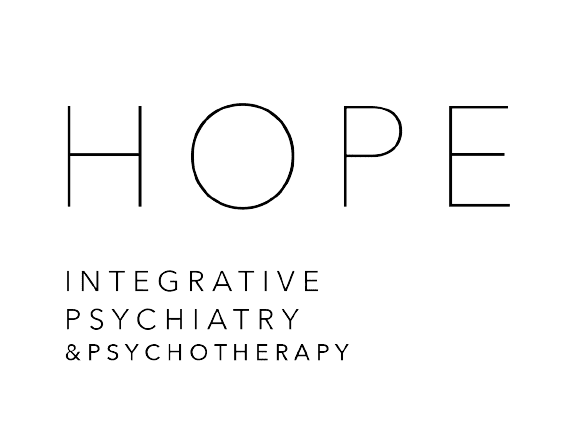In the realm of modern mental health care, the one-size-fits-all approach often falls short of addressing the diverse and nuanced needs of individuals. Integrative psychiatry is a revolutionary approach that places the individual at the center of treatment by offering personalized mental health treatment plans tailored to their unique needs. This patient-centered approach not only enhances the effectiveness of treatment but also empowers individuals to actively engage in their healing journey to mental health recovery.

Understanding Personalization in Integrative Psychiatry
Integrative psychiatry embraces the concept that each person’s mental and emotional well-being is shaped by a complex interplay of factors, including genetics, nutrition, lifestyle, environment, social supports, and personal experiences.
Recognizing this intricate web of influences, integrative psychiatrists take the time to comprehensively assess an individual’s history, challenges, and goals. This in-depth understanding forms the foundation for creating a personalized mental health treatment plan that addresses the root causes of mental health concerns.
The Collaborative Process of Personalization
Personalization in integrative psychiatry is a collaborative process that involves a dynamic partnership between the individual and their healthcare provider. During the initial assessment, the integrative psychiatrist engages in open and empathetic dialogue, actively listening to the individual’s concerns, preferences, and aspirations. This dialogue helps establish a deep rapport and trust, paving the way for a meaningful collaboration in crafting a treatment plan.
Customized Therapeutic Modalities
One of the hallmarks of integrative psychiatry is its utilization of a diverse range of therapeutic modalities. Integrative psychiatrists draw from conventional psychiatric treatments, such as medication and psychotherapy, while seamlessly integrating complementary and alternative therapies. These may include mindfulness practices, relaxation techniques, nutritional guidance, exercise prescriptions, Eastern Medicine practice, yoga, somatic therapies, person-center attachment-based psychotherapy, and more. The selection of therapies is carefully tailored to align with the individual’s unique needs.
Adapting to Changing Needs
Personalized mental health treatment plans in integrative psychiatry are not static; they evolve as the individual’s needs and progress change over time. Regular check-ins and assessments allow integrative psychiatrists to fine-tune the treatment plan, making necessary adjustments and refinements based on the individual’s response to interventions. This adaptability ensures that the treatment remains aligned with the individual’s evolving mental and emotional landscape.
Empowering Individual Responsibility
Personalized treatment plans in integrative psychiatry empower individuals to take an active role in their healing process. By involving patients in decision-making and co-creating their treatment journey, integrative psychiatry fosters a sense of ownership and responsibility. This level of engagement enhances treatment adherence, as individuals are more likely to embrace interventions that resonate with their personal preferences and values.
Guiding Pillars of Personalized Mental Health Treatment
The guiding pillars of a treatment plan within integrative psychiatry approach include:
Holistic Approach: Integrative psychiatry recognizes the interconnectedness of physical, emotional, social, and spiritual aspects of an individual’s life, addressing the whole person rather than isolated symptoms.
Wholeness Emphasis: Integrative psychiatrists collaborate with various healthcare professionals to create comprehensive treatment plans, focusing on the individual’s overall well-being.
Meaning-Making: Integrative psychiatry acknowledges the importance of finding purpose and meaning in life, guiding patients to explore their core values and beliefs to promote personal growth.
Multidimensional Therapies: Utilizes a diverse range of therapies, including complementary and alternative approaches like acupuncture, yoga, meditation, and art therapy, alongside conventional treatments.
Synergistic Effects: Integrating complementary therapies alongside traditional methods enhances the potential for holistic healing and improved mental well-being.
Resilience Building: Integrative psychiatry equips individuals with coping strategies and self-care practices, fostering resilience to effectively navigate life’s challenges.
Empowerment: By educating and involving patients in their treatment plans, integrative psychiatry empowers them to take an active role in their mental health journey.
Lifestyle Optimization: Focuses on lifestyle changes such as exercise, nutrition, and sleep to support overall well-being and prevent future mental health issues.
Personalized Approach: Tailors treatment plans to each individual’s unique needs, considering factors such as medical history, cultural background, and personal preferences.
Prevention-Oriented: Integrative psychiatry’s proactive approach not only treats current symptoms but also aims to prevent the recurrence of mental health issues.
Collaborative Care: Encourages collaboration between patients, psychiatrists, therapists, and other healthcare providers to ensure a well-rounded and individualized approach.
Long-Term Well-Being: Integrative psychiatry’s focus on holistic healing and personal empowerment contributes to sustainable improvements in mental health and overall quality of life.
Continual Adaptation: Recognizing that individuals evolve over time, integrative psychiatry adapts treatment plans to accommodate changing needs and circumstances.
Mind-Body-Spirit Connection: Acknowledges the intricate relationship between mental and physical health, promoting strategies that nurture all aspects of an individual’s well-being.
Cultivating Self-Awareness: Through techniques like mindfulness and introspection, integrative psychiatry helps individuals develop a deeper understanding of themselves and their emotional experiences.
Integrative psychiatry’s commitment to personalized mental health treatment plans signifies a profound shift in mental health care, moving away from a one-size-fits-all approach toward a more personalized and effective model, fostering a holistic approach that promotes well-being, resilience, and empowerment.
By recognizing and respecting the individuality of each person’s mental and emotional landscape, integrative psychiatry not only enhances treatment outcomes but also empowers individuals to actively participate in their path to well-being. The personalized mental health treatment approach of integrative psychiatry holds the promise of reshaping the landscape of mental health care for the better.

